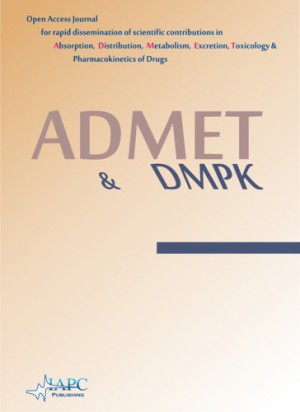
ADMET & DMPK
Yazarlar: Xiaoli Wu, Jing Li, Wei Zhou, Kin Tam
Konular:-
DOI:10.5599/admet.3.3.195
Anahtar Kelimeler:Neurodegeneration,Cognitive impairment,Transgenic mice,Behavioural alteration,Morris water maze,Radial arm water maze
Özet: With the increased morbidity and unclear etiology of Alzheimer’s disease (AD), there is an urgent need to put more effort to investigate the causes of the disease and develop novel drug to stop or reverse the disease progression. Transgenic rodent models mimicking different types of AD-like pathologies are essential resources to discover potential drug targets and study the mechanisms of drug actions. The common symptom of AD is the cognitive deficits. The ultimate readout for any interventions should be evaluated by the test of learning and memory. Although a multiply number of rodent models and behavioral assessment methods have been widely utilized in mechanism studies and screening of novel drug candidates, large variability still exists in the methodologies, especially in terms of how the rodent models are being utilized. To select suitable and valid models for supporting AD research, it is important to understand the characteristics and applicability of the rodent models and behavioral assessment methods. This review seeks to summarize and discuss the pathological feature of some transgenic rodent models that are commonly used in AD research (e.g. APP, PS1/2 and tau gene mutations). Moreover, the characteristics and applicability of some behavioral assessment methods (e.g. Morris water maze and radial arm water maze) will be summarized. Finally, we will discuss the applicability of these models and methods in AD research.